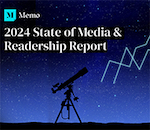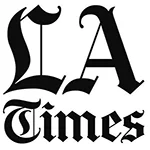Chris Hughes, the Facebook co-founder who purchased The New Republic less than four years ago and served as its publisher and editor-in-chief, has put the magazine up for sale.
In a memo to staff posted on blog-publishing platform Medium, Hughes, who claimed he had invested $20 million in the crisis-stricken progressive magazine, admitted that he had "underestimated the difficulty of transitioning an old and traditional institution into a digital media company in today’s quickly evolving climate."
"The unanswered question for The New Republic remains: can it find a sustainable business model that will power its journalism in the decades to come?" Hughes wrote. "Over the coming weeks, I’ll pursue conversations with those interested in taking on the mantle and supporting the next era of this institution. My aim is to place The New Republic in the hands of the most promising and dedicated potential steward."
Hughes bought the century-old magazine in March 2012 from a group of investors for an undisclosed amount. Those investors had bought the magazine from CanWest subsidiary CanWest Media Works International in 2007. The liberal mainstay publication, which was founded in 1914, currently has a print circulation of less than 50,000.
News of the publication's sale follows a turbulent period under the ownership of billionaire Hughes. After purchasing The New Republic, Hughes opened a new office in New York, cut down on the magazine’s editorials, increased cultural news items and bolstered its online presence, with plans to revamp the publication as a digital media company. In 2014 he replaced key newsroom staff, ousting then-editor Frank Foer, who was replaced by former Gawker editor Gabriel Snyder, brought in former Yahoo! News general manager Guy Vidra as CEO and reduced production to ten issues a year. Those events caused ten contributing editors to resign in protest, and print publication was briefly suspended.
Writing on the debacle in December 2014, Washington Post columnist Dana Milbank called Hughes "a dilettante and a fraud," and "a callow man who accidentally became rich … because he had the luck of being Facebook founder Mark Zuckerberg’s roommate."


 Trump Media & Technology Group today reported a $58.2M net loss on $4.1M in 2023 revenues, a disclosure that drove its stock price down 22.6 percent to $47.96.
Trump Media & Technology Group today reported a $58.2M net loss on $4.1M in 2023 revenues, a disclosure that drove its stock price down 22.6 percent to $47.96. Barry Pollack, an attorney at Wall Street’s Harris St. Laurent & Wechsler, has registered Julian Assange as a client with the Justice Dept. “out of an abundance of caution.”
Barry Pollack, an attorney at Wall Street’s Harris St. Laurent & Wechsler, has registered Julian Assange as a client with the Justice Dept. “out of an abundance of caution.” Paramount Global to slash 800 jobs in what chief executive Bob Bakish calls part of an effort to “return the company to earnings growth"... Rolling Stone editor-in-chief Noah Shachtman is exiting at the end of the month due to disagreements with chief executive Gus Wenner over the direction the magazine is taking... The New York Times broke the $1 billion barrier in annual revenue from digital subscriptions in 2023... Press Forward is investing more than $500 million to strengthen local newsrooms.
Paramount Global to slash 800 jobs in what chief executive Bob Bakish calls part of an effort to “return the company to earnings growth"... Rolling Stone editor-in-chief Noah Shachtman is exiting at the end of the month due to disagreements with chief executive Gus Wenner over the direction the magazine is taking... The New York Times broke the $1 billion barrier in annual revenue from digital subscriptions in 2023... Press Forward is investing more than $500 million to strengthen local newsrooms. The majority of news articles are read within the first three days of publication, according to a recent report.
The majority of news articles are read within the first three days of publication, according to a recent report. The Los Angeles Times gives pink slips to 115 people or 20 percent of its newsroom staff... TIME is also laying off about 30 employees, which is approximately 15 percent of its editorial staff... The Baltimore Banner, which was launched by Stewart Bainum in 2022 after he failed to buy the Baltimore Sun, added 500 subscribers per day in the three days following Sinclair Broadcast Group's deal to purchase the Sun.
The Los Angeles Times gives pink slips to 115 people or 20 percent of its newsroom staff... TIME is also laying off about 30 employees, which is approximately 15 percent of its editorial staff... The Baltimore Banner, which was launched by Stewart Bainum in 2022 after he failed to buy the Baltimore Sun, added 500 subscribers per day in the three days following Sinclair Broadcast Group's deal to purchase the Sun.


 Have a comment? Send it to
Have a comment? Send it to 
No comments have been submitted for this story yet.